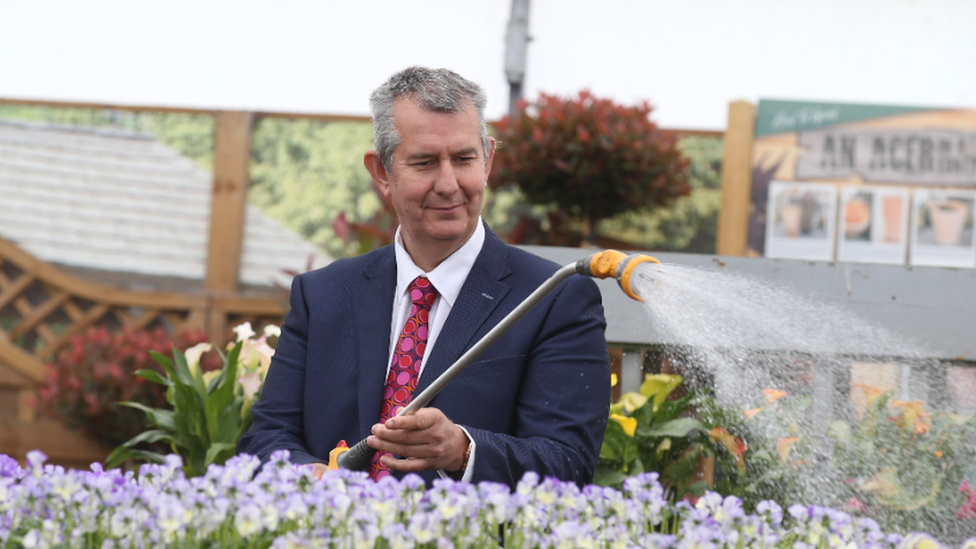Edwin Poots' key priority is avoiding early election
- Published
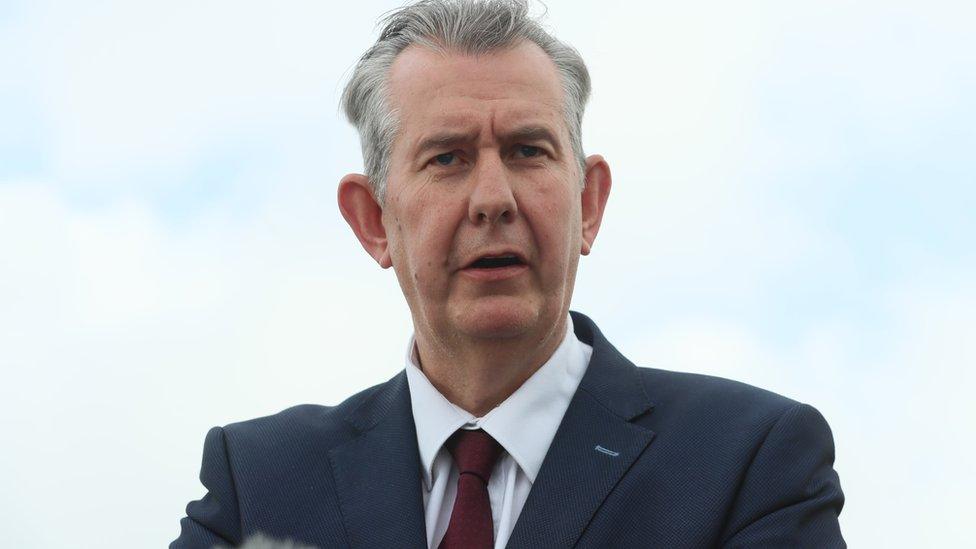
Edwin Poots was ratified as the new leader of the DUP last week
As ice breakers go, it worked a treat for the new DUP leader.
Faced with two potentially tricky first meetings in Dublin as party leader, Edwin Poots needed a line to lighten the mood.
He found it and used it after logging on from his hotel room to host his first party leaders' forum.
"I'm on Fenian Street" he declared with a cheeky smile, when asked how Dublin was treating him by SDLP leader Colum Eastwood.
That got a laugh from his fellow leaders and set the tone for what turned out to be a positive discussion.
Such was the response, Mr Poots may well have used the same line to lighten the mood in his talks afterwards with the taoiseach (Irish PM).
Those discussions, too, ended on a positive note when Mr Poots emerged to say he heard enough from Micheál Martin to end his party's "unofficial boycott" of north-south meetings.
But that, too, felt like a pre-prepared line.
Some within his fractured party suspect the new leader was looking for a way to end the boycott, no matter what was said in Dublin.
'Fraught fortnight'
His opponents, both inside and outside the DUP, accused the new leader of a U-turn, described by TUV leader Jim Allister as "a total flip flop".
But others read the move as Mr Poots slipping into pragmatic mode ahead of a potentially fraught fortnight.
With the deep divisions within his party, avoiding an early election is his key priority.
That means steering clear of any political crisis which might trigger a Stormont collapse and early poll.
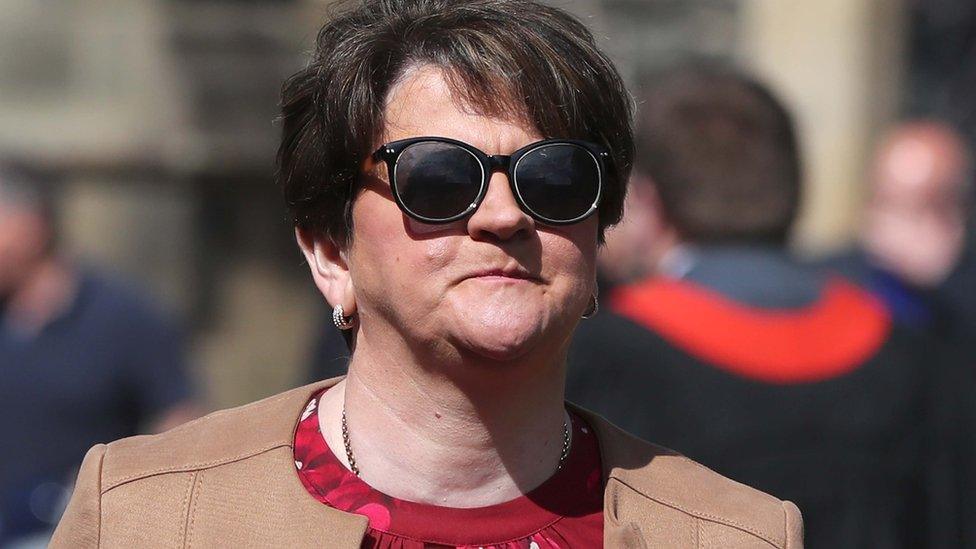
Arlene Foster is expected to stand down as first minister after hosting the British-Irish Council on 11 June
He knows the transition in removing and replacing the first and deputy first ministers provides a pressure point for Sinn Féin.
Sinn Féin is expected to push for the implementation of Irish language legislation and other outstanding commitments agreed in the New Decade, New Approach, external deal.
So maybe Mr Poots has looked at the calendar and made some calculations about a pressure point he could use.
As it stands, Arlene Foster is expected to stand down as first minister after hosting the British-Irish Council on Friday, 11 June.
The earliest her letter of resignation can drop on the speaker's desk is Monday, 14 June.
That will then trigger the removal of Michelle O'Neill as deputy first minister - four days before the north-south ministerial meeting on 18 June.
Now Mr Poots has committed to attend the gathering in Dublin, along with his new first minister, the pressure will be on Sinn Féin to nominate a deputy first minister before the seven-day deadline.
If the party fail to do so, then the north-south gathering may be cancelled and Mr Poots will claim the political high ground.
History tells us when political parties have seven days to play with, they take seven days.
Between now and then, we can expect some hard talk behind the scenes to try to avoid a crisis no party wants, or an early election no party can afford.
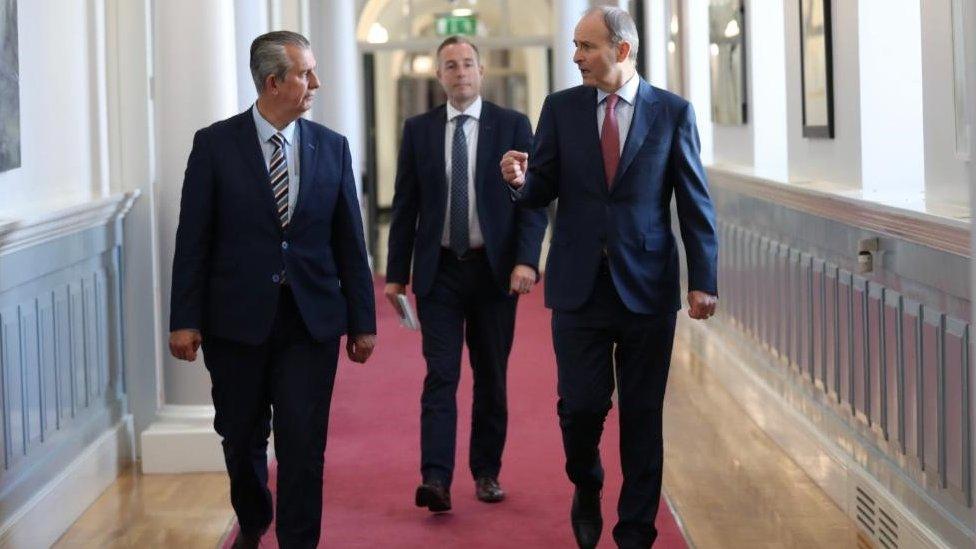
Edwin Poots and Paul Givan (centre) met Micheál Martin in Dublin
But there is another key date to further complicate the picture.
10 July is the date when Stormont breaks for the summer recess.
If Irish language and Ulster Scots legislation is to make it through the assembly before the end of the mandate in May - it needs to start that passage before the recess.
That can only happen if the DUP agrees with the other Stormont parties to press the start button - something it has resisted so far.
Big decisions will have to be made or soft landing zones will have to be found.
Chances are the parties will have some pre-prepared lines ready to go.
But it may not be as easy to lighten the mood the next time the DUP leader heads south.
Related topics
- Published30 May 2021
- Published3 June 2021
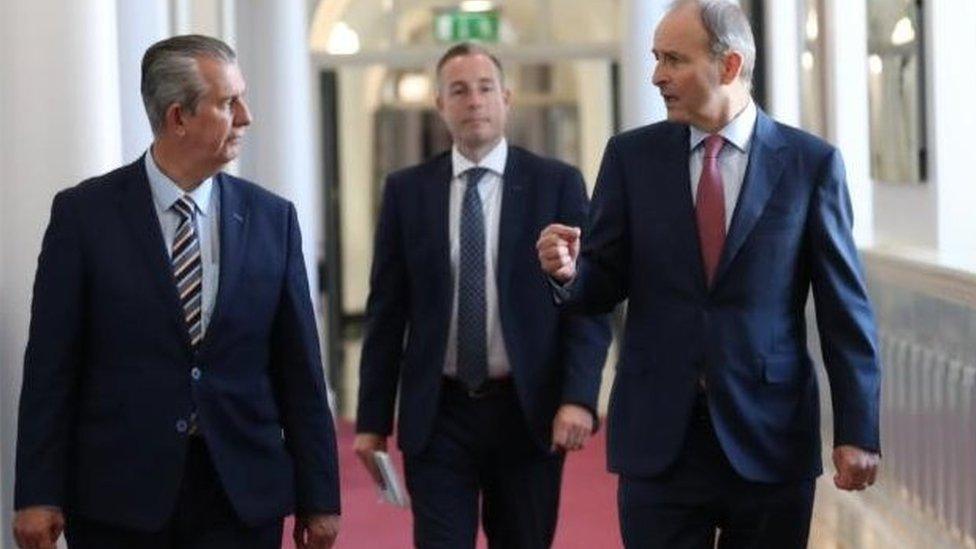
- Published3 February 2024
